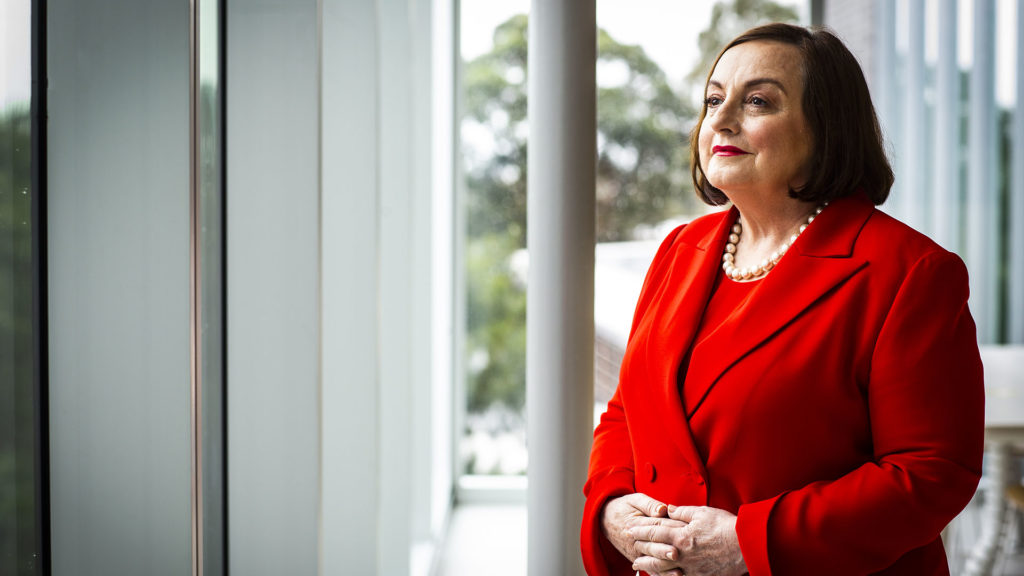It is an honour to reflect on the life of Alan Owen and how his values and mentorship are embedded within the University of Wollongong. His commitment to health equity and social justice have left a mark across generations, and reflecting on the relevance and meaning of these values have never been more profound.
The COVID-19 pandemic has brought about a change in almost every aspect of our lives; the traditional way of doing business, as we remember it before the pandemic, has changed fundamentally.
A post-COVID world will require new strategic alliances, business models and transparency for internationalisation. This is where technology will complement science to deliver the desired outcomes. This does not mean universities should abandon their essential mission or their values.
Today, the world is truly interconnected, with technology driving business models, our ways of working and connecting. We experienced the importance of technology at the University of Wollongong when the pandemic necessitated the transition to remote learning to avoid major disruption to learning and teaching.
Our students and staff remained resilient and adapted to this new teaching method, which has now become a key approach to learning across the globe. However, the concept of hybrid learning will remain a challenge for research and learning that requires a more hands-on practical approach.
Universities will undoubtedly play an increasingly important role in the recovery from the pandemic, requiring a collaborative effort in research and knowledge sharing between institutions. I feel optimistic about the University of Wollongong’s values, its agility and the ability to get things done.
Over recent decades, the internationalisation of the higher education sector and bi-lateral governmental links to build skills, capacity and knowledge exchange at the global level have remained key factors in producing highly skilled local talent.
This has increased the value and prominence of post-secondary education, leading to an increased demand for education internationally. Low- and middle-income countries have traditionally looked to established economies for collaboration with universities.
Most importantly, social, political and economic factors have led to the internationalisation of higher education, fuelled by the forces of globalisation, internal markets, universities and information technology.
Beyond this version of the idealism of edification, higher education has become big business with international competition for the recruitment of students, placement of regional campuses, student and faculty exchange, service-learning and formal partnerships for teaching and research.
Understanding the university's role within a context of geopolitical instability and trends towards nationalism and populism is important.
However, the one thing that has remained firm during the pandemic among universities is the sharing of ideas and bridging the knowledge gap through research and innovation.
A clear example of that is the development of the COVID-19 vaccine by Oxford University in collaboration with AstraZeneca. This successful partnership has opened the door to opportunities for technology to address future health issues.
Almost everything that has saved the world from the pandemic has been the product of a university – from vaccines through to providing our communities with competent health professionals.
We are fortunate to live in a country with a robust healthcare system and exceptionally well-prepared health staff to cater to the needs of our community. That also means we, as a nation, have a collective responsibility to provide support to low income and neighbouring countries that would help reduce social inequality and make access to healthcare easier.
It is pleasing to see that Australia will become one of the few countries to manufacture mRNA vaccines locally. Universities will play a critical role and invest in the research and development of this highly proven technology to fight future health issues. They will also foster the sciences of health communication, supply chain and international relations.
The COVID-19 pandemic has highlighted both the fragility and power of higher education internationally, requiring an augmented focus on collaboration. Fundamentally, universities are the home of ideas and a place where minds are cultivated and values are formed.
The passion, desire and hunger to make a difference in the world will remain a core driver for universities across the globe.
Patricia Davidson is the vice chancellor of the University of Wollongong. The above is an edited excerpt from her address at the annual Alan Owen Lecture on Friday 10 December 2021.
Do you have an idea for a story?Email [email protected]
 Campus Review The latest in higher education news
Campus Review The latest in higher education news


